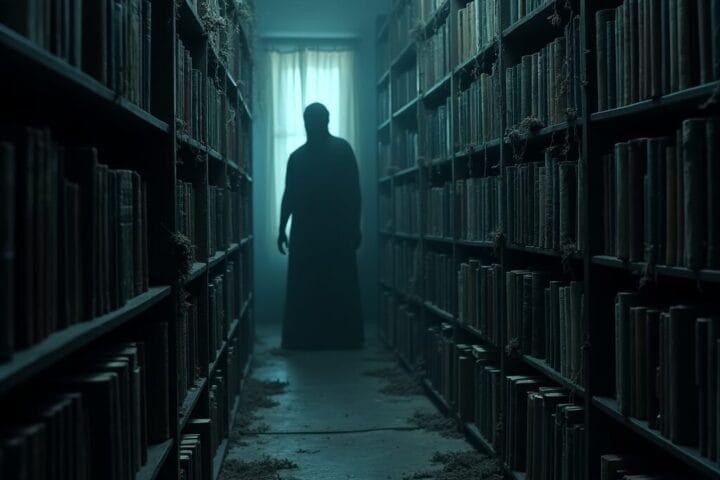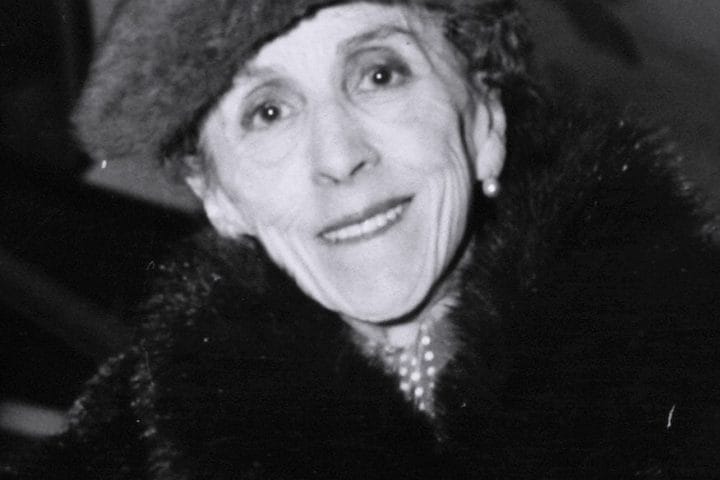Truman Capote, an enigmatic figure in American literature, is celebrated for his distinct voice and pioneering contributions to the literary world. From his early years growing up in the southern United States to his rise as a celebrated author, Capote’s journey is one marked by exceptional talent and personal complexities. Known for his groundbreaking works such as “In Cold Blood” and “Breakfast at Tiffany’s,” Capote’s influence continues to resonate within contemporary literature. This blog post explores the life, works, and lasting impact of Truman Capote, shedding light on the experiences and relationships that shaped his extraordinary career.
Early Life and Influences That Shaped Truman Capote
Truman Capote was born on September 30, 1924, in New Orleans, Louisiana. After his parents’ tumultuous marriage dissolved, he was raised in Monroeville, Alabama, by his mother’s relatives. This small southern town, with its distinctive charm and eccentricity, provided a rich backdrop for Capote’s early life, fostering his imaginative tendencies. Lonely and often feeling out of place, young Truman found solace in literature, spending countless hours immersed in books. A pivotal influence during these formative years was his close friendship with Harper Lee, who lived next door. Their bond was characterized by mutual support and literary collaboration, laying the groundwork for Capote’s future endeavors. Lee’s keen observations and shared experiences contributed to Capote’s evolving narrative style, marked by acute detail and deep psychological insight. Capote’s voracious reading habits also played a crucial role in shaping his literary voice. He devoured works by classic authors and contemporary writers alike, honing his craft through a blend of inspiration and critical observation. The vivid imagery and lyrical prose that would later define his work were rooted in these early years of passionate engagement with literature. Another significant influence was Capote’s ability to keenly observe the world around him. His acute sensitivity to human behavior and his surroundings became a hallmark of his writing, enabling him to create richly textured characters and settings. This unique narrative approach, developed from a young age, would captivate readers and critics alike, establishing Capote as a distinctive voice in American literature.
Rise to Literary Fame with “Other Voices, Other Rooms”
Truman Capote burst onto the literary scene with the publication of his debut novel, “Other Voices, Other Rooms,” in 1948. The novel, which draws heavily from Capote’s own experiences, tells the story of a young boy named Joel Knox who travels to a decaying mansion in the Deep South to live with his estranged father. The narrative is rich with gothic elements and explores themes of identity, self-discovery, and the search for belonging. Set against the evocative backdrop of a small southern town, the novel was praised for its lush prose and vivid imagery. Capote’s ability to create an atmospheric and immersive setting earned him critical acclaim and comparisons to renowned Southern Gothic writers like William Faulkner. His writing, characterized by meticulous attention to detail and a deep psychological insight into his characters, set him apart as a unique voice in American literature. The semi-autobiographical nature of “Other Voices, Other Rooms” provided readers with a glimpse into Capote’s own struggles and aspirations. The novel’s success catapulted Capote to literary fame, establishing him as a major figure in the literary world. The book’s cover, featuring a photograph of a reclining Capote, further cemented his image as a literary provocateur. “Other Voices, Other Rooms” was not just a commercial success but also a critical milestone that showcased Capote’s talent for blending personal experience with broader themes. This novel laid the foundation for his future works, where his keen observational skills and lyrical prose would continue to captivate audiences and leave an indelible mark on American literature.
Capote’s Masterpiece: The Creation of “In Cold Blood”
“In Cold Blood” stands as a monumental achievement in Truman Capote’s career and a defining moment in the literary world. Published in 1966, the book provides a harrowing account of the brutal 1959 murder of the Clutter family in Holcomb, Kansas. Through painstaking research and immersive interviews, Capote managed to weave a narrative that combined journalistic rigor with literary finesse. The term “nonfiction novel” was born from Capote’s innovative approach, where he meticulously detailed the lives of both the victims and their murderers, Richard Hickock and Perry Smith. His ability to delve into the psychological depths of his subjects, offering nuanced portrayals of their motivations and emotions, set “In Cold Blood” apart from traditional true crime stories. This empathetic yet unflinching examination of human nature captivated readers and critics alike. Capote’s intimate relationship with the killers, particularly Perry Smith, added a layer of complexity to the narrative. His interactions with them fueled both controversy and acclaim, as some questioned the ethical boundaries of his involvement. Nonetheless, the resulting work was a compelling exploration of violence, morality, and the American justice system. “In Cold Blood” not only cemented Capote’s reputation as a literary innovator but also established a new standard for narrative nonfiction. His masterful blending of fact and fiction created a gripping, thought-provoking read that continues to influence the genre. The book’s impact extends beyond its immediate success, inspiring subsequent generations of writers to push the boundaries of storytelling in their quest to illuminate the human condition.
Capote’s Relationship with Harper Lee and Mutual Influences
Truman Capote and Harper Lee shared a unique and profound friendship that deeply influenced their literary careers. Growing up as neighbors in Monroeville, Alabama, their early bond was rooted in a mutual love for storytelling and a keen observation of the world around them. This camaraderie provided both writers with a solid foundation of support and inspiration that would echo throughout their lives. Lee’s meticulous attention to detail and sharp narrative skills were instrumental in shaping Capote’s approach to writing. When Capote embarked on his ambitious project, “In Cold Blood,” Lee accompanied him to Kansas, assisting with research and interviews. Her presence and insights were invaluable, demonstrating the symbiotic nature of their partnership. In turn, Capote’s encouragement and unwavering belief in Lee’s talent played a crucial role in her creation of “To Kill a Mockingbird.” The character Dill Harris, based on Capote, reflects the depth of their friendship and Lee’s admiration for his distinctive personality. Similarly, Capote’s Idabel Thompkins in “Other Voices, Other Rooms” was inspired by Lee, showcasing their mutual influence on each other’s work. Despite the occasional strains that arose from professional rivalries and personal differences, Capote and Lee’s friendship remained a significant, albeit complex, aspect of their lives. Their shared experiences and mutual respect left an indelible mark on their literary legacies, illustrating how their collaboration and support fueled some of the most iconic works in American literature.
The Complexities of Truman Capote’s Personal Life
Truman Capote’s personal life was as multifaceted as his literary creations. He was well-known for his flamboyant personality and his affinity for mingling with the social elite of New York City, making him a beloved fixture among celebrities like Jacqueline Kennedy Onassis and Marilyn Monroe. Yet, behind this glamorous exterior, Capote grappled with profound feelings of isolation and insecurity. His relationships, whether platonic or romantic, were often turbulent, reflecting the challenges of being a gay man in mid-20th-century America. These personal struggles were exacerbated by his reliance on alcohol and drugs, which significantly impacted his emotional well-being and creative productivity in his later years. Capote’s childhood experiences, including his parents’ divorce and his subsequent upbringing in Alabama, also left deep emotional scars that influenced his complex interactions with others. Despite his personal challenges, Capote’s ability to delve into the nuances of human relationships in his writing remained unmatched. His work often mirrored the tumult and beauty of his own life, creating rich, emotionally resonant narratives that continue to captivate readers. Capote’s keen observational skills and deep psychological insights allowed him to create characters that were as intricate and compelling as the man himself, ensuring his place as a remarkable figure in American literature.
Capote’s Legacy and Continued Influence on Modern Literature
Truman Capote’s literary legacy remains a beacon of innovation and storytelling mastery. His groundbreaking fusion of fact and fiction in “In Cold Blood” has inspired countless writers to push the boundaries of narrative nonfiction, setting a high standard for the genre. Capote’s keen insight into human nature and his meticulous attention to detail have made his works timeless classics that continue to captivate readers. Modern authors often cite Capote as a profound influence, drawing from his ability to create vivid, emotionally complex characters and immersive settings. His fearless exploration of human psychology and his lyrical prose style have left an indelible mark on both literary fiction and true crime writing. Capote’s work encourages contemporary writers to delve deeper into their subjects, seeking to understand the intricate layers of their characters and the world they inhabit. Beyond his narrative techniques, Capote’s daring persona and his candid examination of social issues resonate with today’s audiences, fostering a lasting connection with new generations of readers. As the literary world evolves, Capote’s contributions continue to inspire and challenge writers to explore the rich complexities of the human experience, ensuring his enduring influence on modern literature.













